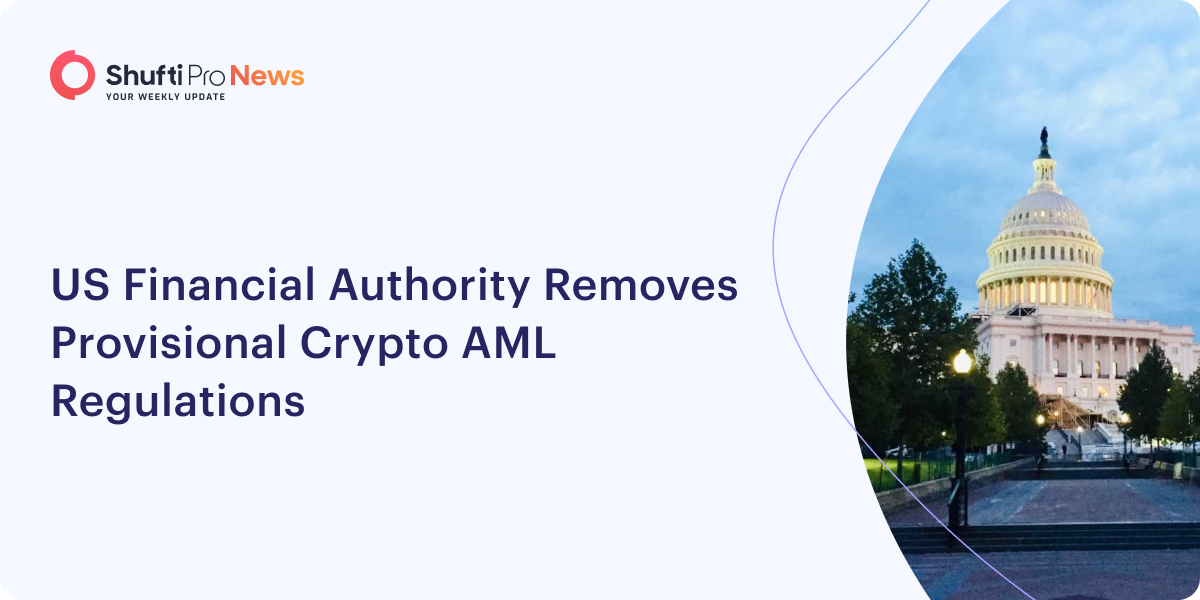News
UAE Praises Singapore’s S$2.8b Financial Crime Bust
The director-general of UAE anti-money laundering and counter-terrorism financing commends Singap...
 Explore More
Explore More
News
Two More Crypto Firms to Shut Down Over EU Money Laundering Regulations
Two more cryptocurrency firms – mining pool Simplecoin and bitcoin gaming platform Chopcoin...
 Explore More
Explore More
News
Remarkable Progress in Facial Recognition Revealed by a New Study
Could you have imagined a few years ago that you could be identified from your brain scan? The id...
 Explore More
Explore More
News
Crypto Bank Anchorage Has Inadequate AML Measures, Says US Federal Regulator
A US federal regulator has said that the first federally-chartered digital asset bank Anchorage D...
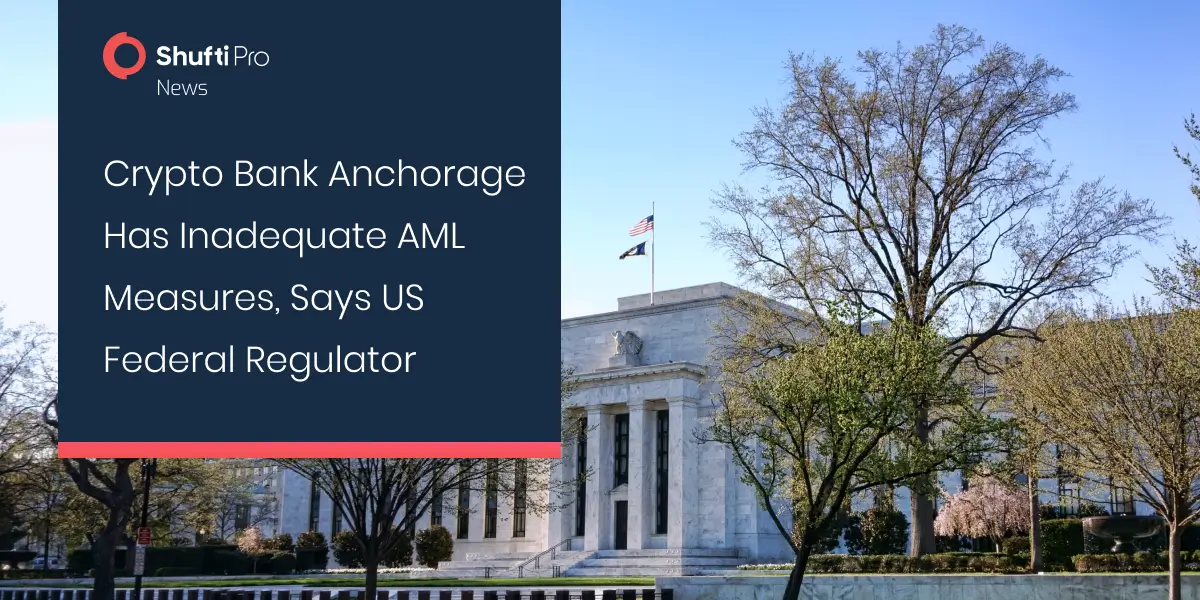 Explore More
Explore More
News
Portuguese Banks Restrict Services for Crypto Exchanges, Citing Risky Grounds
Portuguese banks have restricted services of multiple crypto exchange firms operating in the coun...
 Explore More
Explore More
News
Falklands and Gibraltar Still on Spanish ‘Tax Haven’ List, Says Report
The official Spanish Gazette published a list which consists of Falklands/Malvinas and Gibraltar ...
 Explore More
Explore More
News
Abu Dhabi to Establish Executive Office to Combat Illicit Financial Flow
A specialised court in Abu Dhabi will be developed to oversee the measures to fight financial cri...
 Explore More
Explore More
News
South Africa Issues Stricter Guidelines for Crypto Traders
To prevent the surging cases of financial crime, South Africa has introduced rigid regulations fo...
 Explore More
Explore More
News
Scottish Firm Blacklisted by the World Bank for Fraudulent Practices
An anonymously owned Scottish firm has been blacklisted by the World Bank for being involved in f...
 Explore More
Explore More
News
Hogan and other US Top Official Become the Victim of Identity Theft
A fraud scheme attacking top government officials of Maryland State has been uncovered. The schem...
 Explore More
Explore More
News
FIU in Sri Lanka Penalises Financial Firms over AML/CFT Non-Compliance
Sri Lanka’s Financial Intelligence Unit (FIU) has recently penalised two financial institutions i...
 Explore More
Explore More
News
Cryptocurrency criminals are lurking on Youtube
Cryptocurrency criminals are lurking on YouTube, a recent lawsuit filed by Apple co-founder Steve...
 Explore More
Explore More
News
UK Gambling Commission Charges Kindred Brand $8.7M over AML Shortcomings
The UK Gambling Commission has charged the Kindred Group with a hefty £4.19-million (US$5.15 mill...
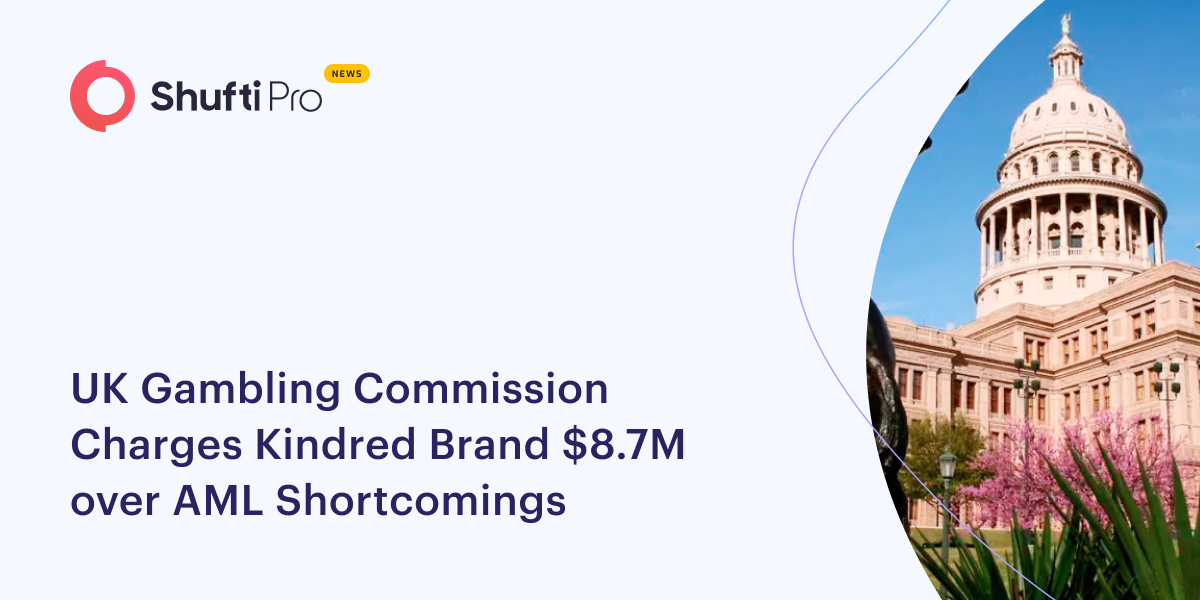 Explore More
Explore More
News
US Set to Disclose New Real Estate Regulations to Combat Money Laundering
The US Treasury Department is ready to introduce rigid regulations to close security loopholes in...
 Explore More
Explore More
News
Canada loses millions in online scams
According to CBC News, 6492 incidents of fraud were reported to Edmonton Police last year, result...
 Explore More
Explore More
News
Central Valley Towns Become the Hot Spot of Identity Theft
A new report identifies a small number of Central Valley towns with the highest incidence of iden...
 Explore More
Explore More
News
European parliament imposes ban on facial recognition technology
Following a public outcry after the leak of an internal memorandum discussing the utilization of ...
 Explore More
Explore More
News
Ledger Owners Scammed worth 1.1 Million XRP
Earlier this year Legsdger customers faced a leak of email and personal information. Now they are...
 Explore More
Explore More
News
Louisiana Approves First Regulation Requiring Age Verification to Access Pornography Sites
Louisiana’s House of Representatives passed the bill against age verification in the porn industr...
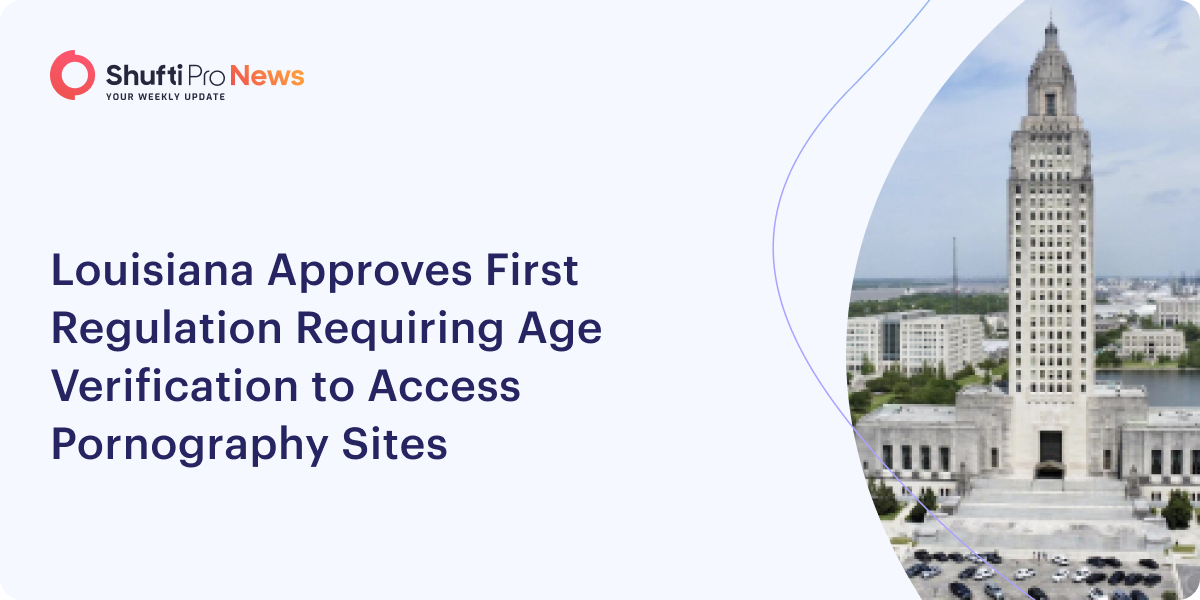 Explore More
Explore More
News
UAE Central Bank Imposes Dh352k Fine on Currency Exchange
The Central Bank of the UAE has fined an exchange house with a total of Dh352,000 for shortcoming...
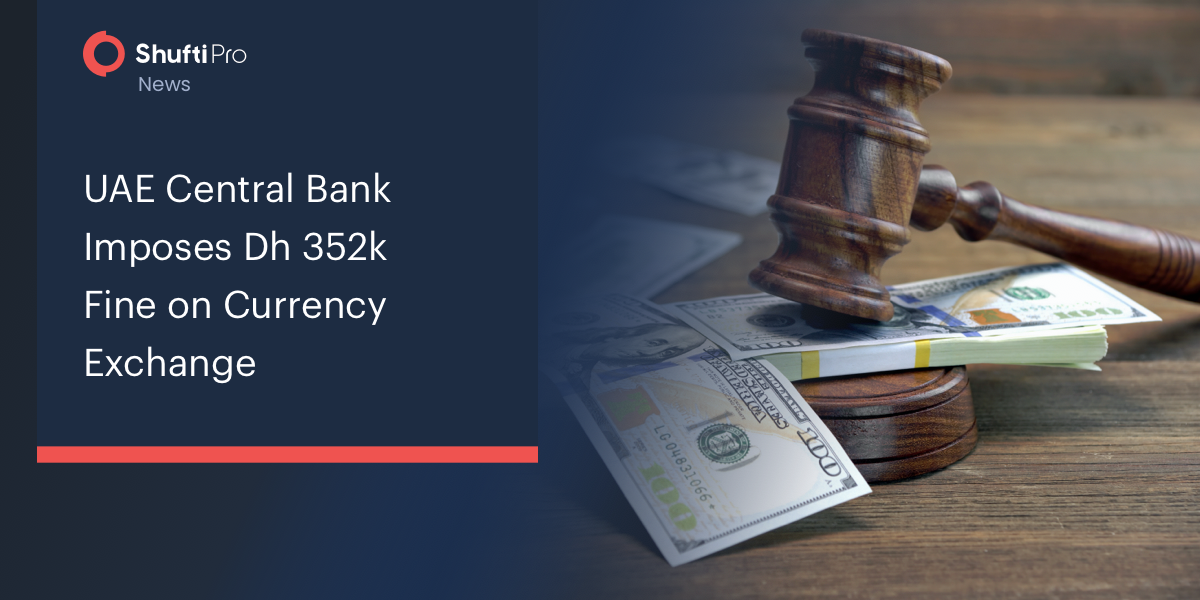 Explore More
Explore More
News
The Rise of FinTech Services can Spur Financial Risk: Says U.S. Bank Regulator
According to the US bank regulator, banks and the fintech alliance for a seamless customer experi...
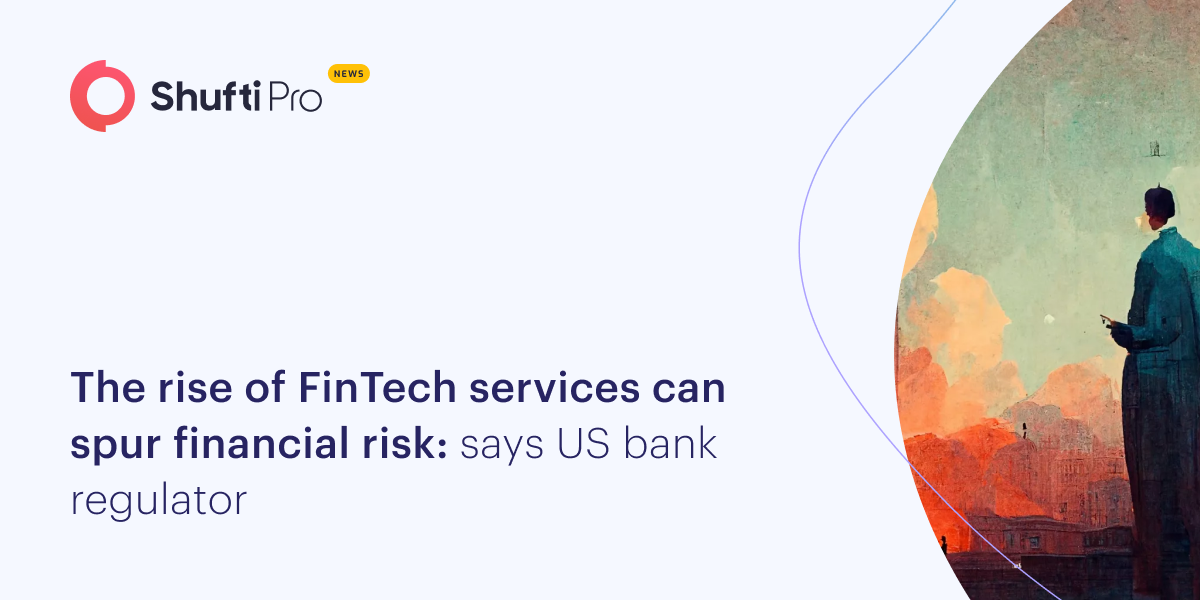 Explore More
Explore More
News
HSBC Bank SMS Phishing Scam Targets UK Victims
A new phishing scam, designed to lure victims into handing over their HSBC bank account details, ...
 Explore More
Explore More
News
DFSA and Financial Intelligence Collaborate to Combat Financial Crime in UAE
Memorandum of Understanding (MoU) between the Dubai Financial Services Authority (DFSA) and the F...
 Explore More
Explore More
News
ProtonMail added an encrypted calendar to its encrypted Gmail competitor
Previous year Google faced a hefty fine of $170 million by the Federal Trade Commission following...
 Explore More
Explore More
News
China’s Central Bank Fines ICBC & Bank of Chongqing for AML Shortcomings
Chinese banks including industrial and commercial banks of Chongqing have been fined by regulator...
 Explore More
Explore More
News
Kenya Flags Betting Jackpots as Possible Avenues for Money Laundering
Kenya has flagged the mega jackpots paid to the punters in the country as the possible avenues fo...
 Explore More
Explore More
News
US Accuses Crypto Firms for Serving as Money Laundering Hub
The US Treasury’s department targeted the crypto mixers to combat internationally operated financ...
 Explore More
Explore More
News
Vietnam’s Deputy PM Approves National Action Plan for the Prevention of Financial Crime
Vietnam’s Deputy Prime Minister Signed a National Action Plan for the control and prevention of M...
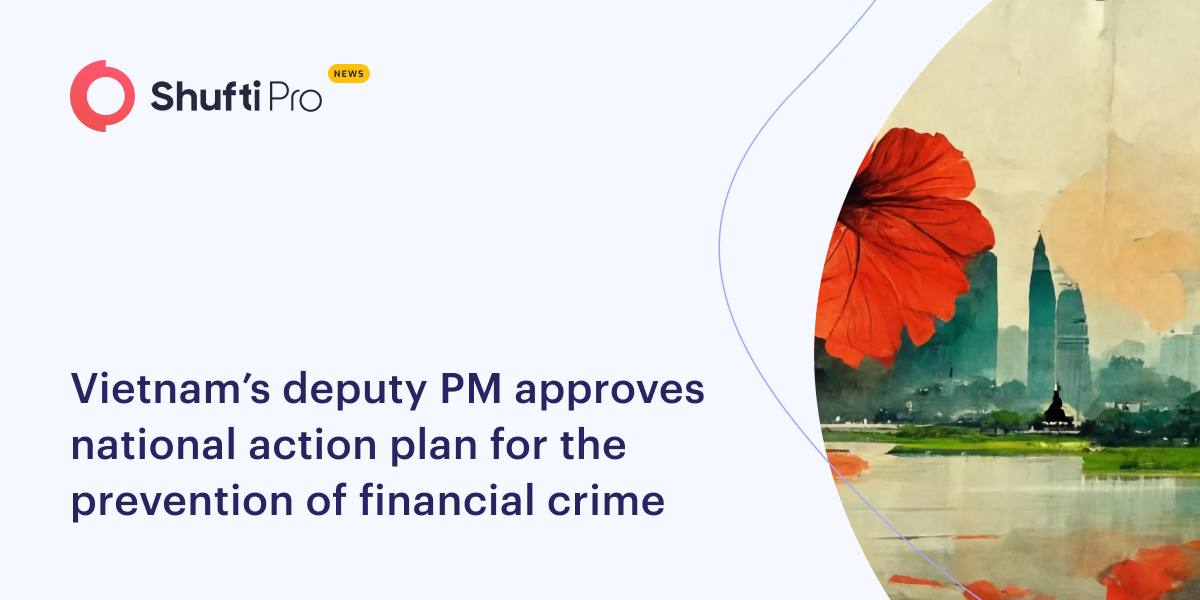 Explore More
Explore More
News
Pinterest Enhances Age Verification Measures to Protect Users Under 16
Pinterest reveals a new series of security features to make its platforms secure for teens. These...
 Explore More
Explore More
News
Swedish Legislators Propose an Increase in Money Laundering Penalties for the Gambling Industry
Legislators in Sweden will consider increasing penalties for gambling operators who violate the n...
 Explore More
Explore More
News
UAE Imposes Fines Exceeding Dh115 Million to Combat Money Laundering in Q1 of 2023
The UAE has imposed a monetary penalty of Dh115 million ($31.3M) in the first quarter (Q1) of 202...
 Explore More
Explore More
News
South Africa’s Addition to FATF Gray List Causes Unforeseen Repercussions on Tax Law Implementation
Tax Consulting SA’s report has revealed that greylisting has caused disquietude surrounding...
 Explore More
Explore More
News
South African Government Passes Key AML and CFT Laws to Fight Financial Crimes
South African government passes two significant laws to implement Anti Money Laundering and Count...
 Explore More
Explore More
News
EBA revised its guidelines on ML/FT risk factors
The European Banking Authority (EBA) issued revised money laundering and terrorist funding (ML/TF...
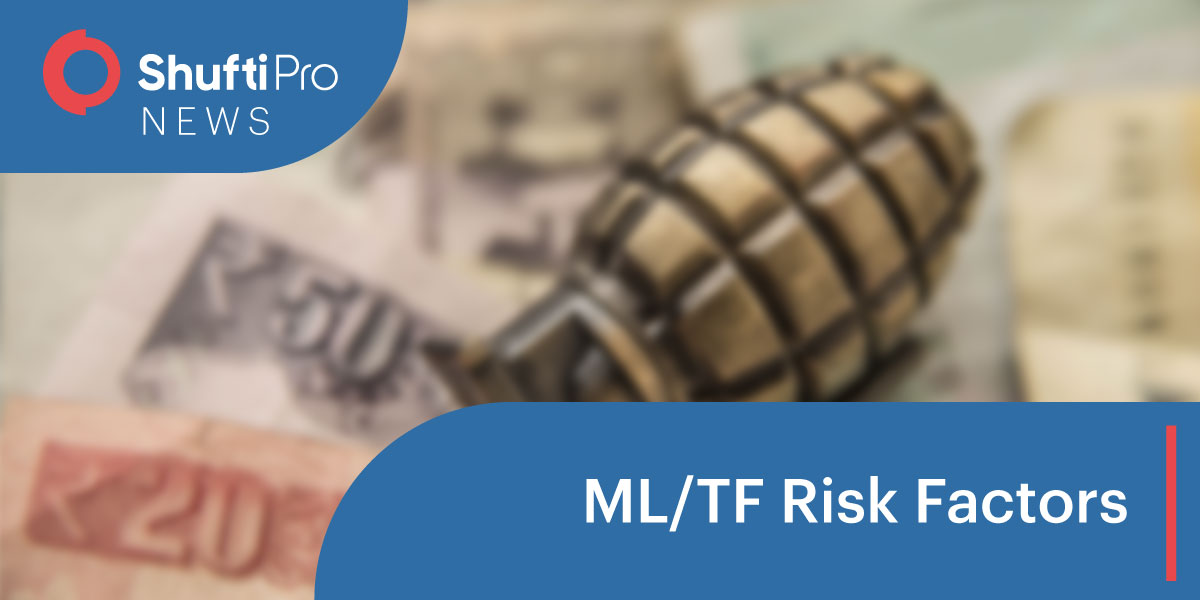 Explore More
Explore More
News
UAE to Step Up AML Measures to Avoid FATF’s Gray List
After FATF’s warning to grey list the UAE for AML failures, the region is set to step up complian...
 Explore More
Explore More
News
‘Businesses need to brace for Iranian Cyberattacks’ – warns Homeland Security
The news of the assassination of Iranian military commander, Qaem Soleimani, is all over the medi...
 Explore More
Explore More
News
Online fraud attempts increase during COVID-19 catastrophe
According to ACI Worldwide, the rate of fraud attempts have increased to 4.3% in April, slightly ...
 Explore More
Explore More
News
New Crypto Regulations to be Followed by Korean Banks
South Korea is increasing cryptocurrency regulations by making KYC verification necessary along w...
 Explore More
Explore More
News
UAE Imposes Dh65 Million Worth of AML Fines on 137 Companies
After examining 840 companies, 137 companies failed to comply with anti-money laundering and comb...
 Explore More
Explore More
News
Senate Reveals a 12-Year-Old Loophole Targeted by Americans to Cheat IRS
Offshore tax loopholes are safe havens for wealthy Americans to cheat the Internal Revenue Servic...
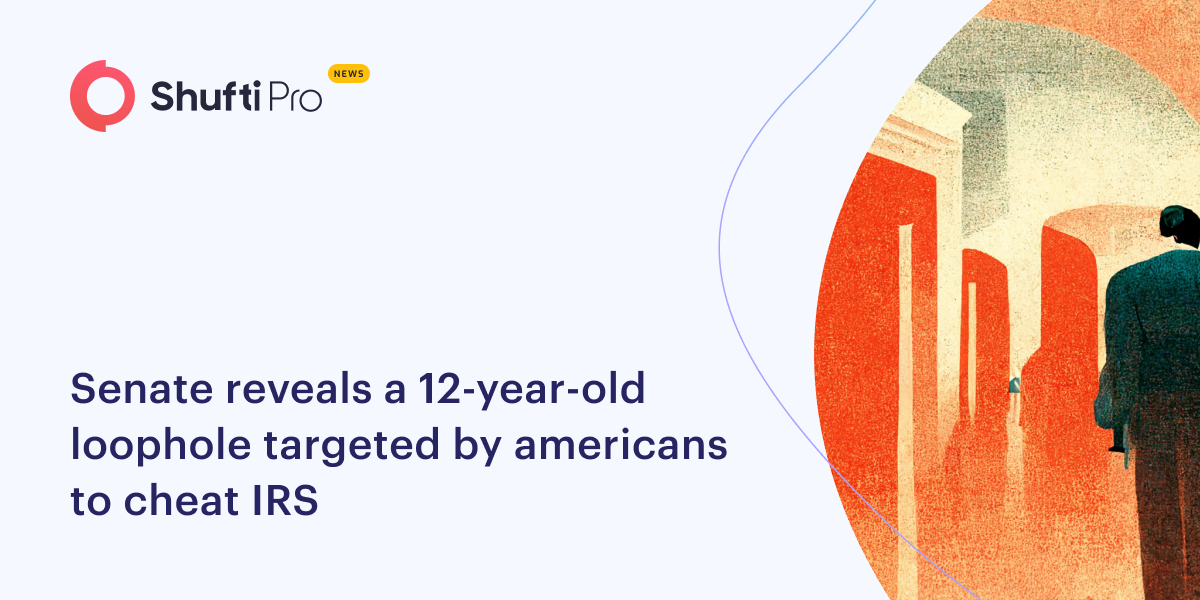 Explore More
Explore More
News
Singapore Plans to Amend Laws to Arrest Money Mules Facilitating Scams
Singapore authorities have decided to amend laws for prosecuting money mules facilitating financi...
 Explore More
Explore More
News
Coronavirus affects challenger banks as app downloads decline
According to Finbold, top challenger banks in the United Kingdom have noticed a sudden decline in...
 Explore More
Explore More
News
Man arrested for money laundering offenses related to COVID-19
A 39-year-old Singaporean man has been apprehended for his suspected involvement in money launder...
 Explore More
Explore More
News
Saudi Central Bank Instruct Banks to Combat Financial Crimes
According to the Central Bank of Saudi Arab, the fraudulent operations are linked with the money ...
 Explore More
Explore More
News
AUSTRAC: Loan Fraud is the Main AML/CFT threat to Non-banks
AUSTRAC report states loan scams and identity fraud as the main threat to AML/CFT compliance when...
 Explore More
Explore More
News
Belgian Banks to Establish a Platform to Reveal Anti-Money Laundering data
Belgium’s one of the leading bank chain has now suggested developing a platform that will allow p...
 Explore More
Explore More
News
UAE Strengthens AML Measures to Bolster Virtual Asset Framework
The UAE’s anti-money laundering and counter-terrorism financing department stated it continues bo...
 Explore More
Explore More
News
Saudi Arabia has Achieved Another Victory in the Battle Against Financial Crimes
Saudi authorities seized $1.06 million from a criminal gang accused of money laundering. The culp...
 Explore More
Explore More
News
Banks warned against profiteering from UK coronavirus crisis
British institutions, including banks, have been urged to avoid profiteering from the Coronavirus...
 Explore More
Explore More
News
France to Test Digital Currency in the First Quarter of 2020
The digital currency race is building up and every country wants to take part in it. Now, Banque ...
 Explore More
Explore More
News
UAE startup relies on Blockchain to flatten COVID-19 curve
In5, UAE based start-up incubator, is assisting to design blockchain-based techniques to suppress...
 Explore More
Explore More
News
Uganda at Risk of Getting Blacklisted by FATF Unless it Addresses 16 Issues
Uganda is facing the risk of being added to a global blacklist for money laundering and terrorism...
 Explore More
Explore More
News
Danske to face $2 billion fine for money laundering
According to Jyske Bank, Danske will probably be fined around 13.5 billion kroner (around $2 bill...
 Explore More
Explore More
News
Phillippines Added to FATF Gray List Again for Inadequate AML Casino Measures
The Philippine financial system did not comply with international Financial Action Task Force (FA...
 Explore More
Explore More
News
Online fraudsters steal £17m over COVID-19 lockdown
About £17 million have been lost due to online fraud over the Coronavirus lockdown period with yo...
 Explore More
Explore More
News
Identity Thieves on the Hunt for Universal Credit Payments
The UK’s Department for Work and Pension (DWP) has been warning people for not repaying for the b...
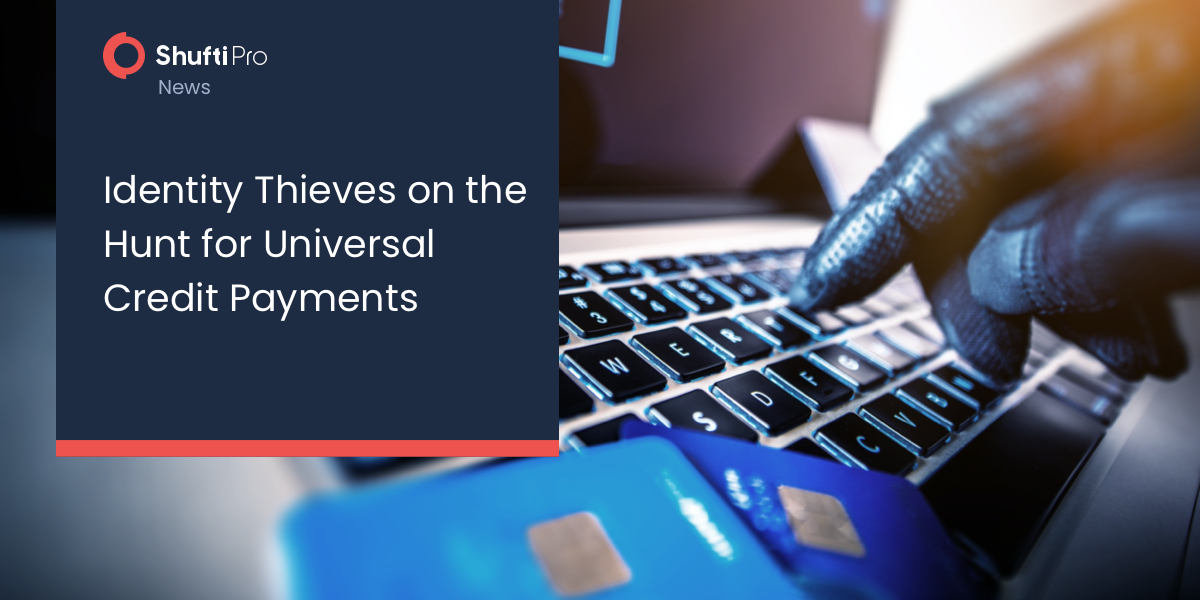 Explore More
Explore More
News
Italy Launches Money Laundering Investigations into Qatargate Associates
Italian prosecutors have launched a probe related to the EU parliament Qatargate affair as a new ...
 Explore More
Explore More
News
Roll-out of vital banking fraud check postponed again due to Coronavirus
A crucial banking security check that could avert the loss of millions of pounds to internet frau...
 Explore More
Explore More
News
Crypto firms Halt Business in China After an Intense Government Crackdown
Cryptocurrency businesses have stopped their operations after the government led an intense inves...
 Explore More
Explore More
News
Central Bank of Nigeria (CBN) Raises Concerns Over KYC and AML Protocols
The Central Bank of Nigeria (CBN) has intensified pressure on financial institutions (FIs) to imp...
 Explore More
Explore More
News
Japan Launches a Three-Step Plan for Introducing Digital Yen
After the announcement of the Bank of Japan to introduce digital Yen by 2021, the statement by Ko...
 Explore More
Explore More
News
Italy Launches Money Laundering Investigations into Qatargate Associates
Italian prosecutors have launched a probe related to the EU parliament Qatargate affair as a new ...
 Explore More
Explore More
News
Shufti picks up two business awards
October has been an amazing month for Shufti. In September it was nominated for outstanding p...
 Explore More
Explore More
News
Australian Bank, Westpac, Accused of 23 Million Money Laundering Breaches
Australia’s financial intelligence agency, The Australian Transaction Reports and Analysis Centre...
 Explore More
Explore More
News
Australian Government to Extend AML and CTF Regime
The Australian Government has initiated a consultation on revising the Anti-Money Laundering (AML...
 Explore More
Explore More
News
Two of Singapore’s Banking Giants Involved in Billion-Dollar Money Laundering Case
The two well-known banks in Singapore, Development Bank Singapore (DBS) and Overseas Chinese Bank...
 Explore More
Explore More
News
Australian Government Announces Development of Gambling Regulations Commission
Australian spokespersons for Gambling and Harm Reduction forced the New South Wales (NSW) governm...
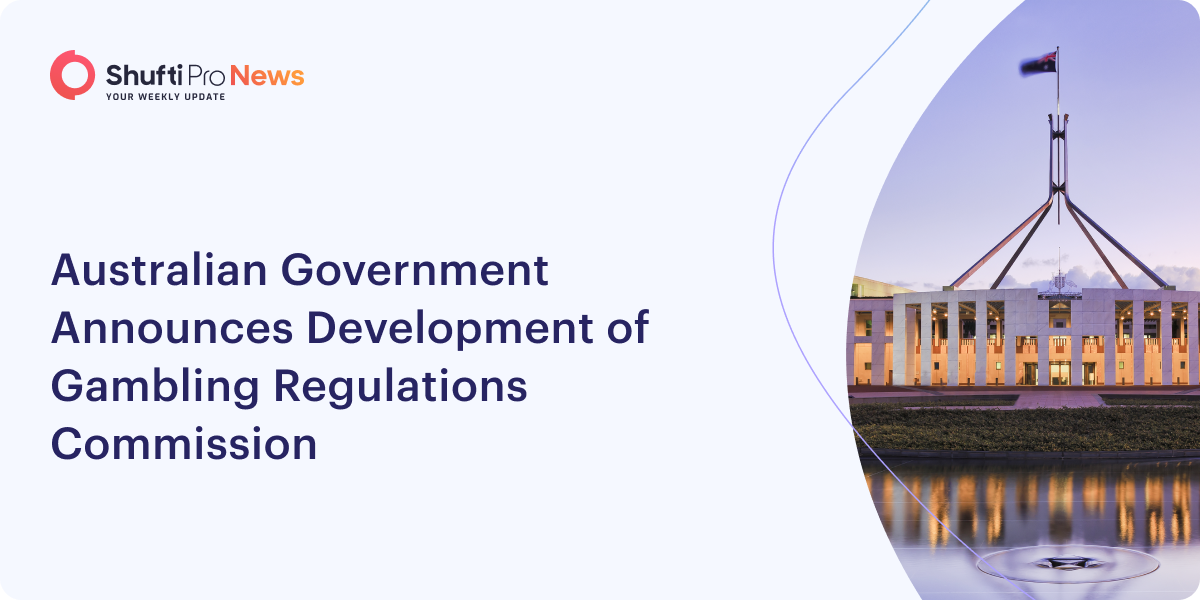 Explore More
Explore More
News
South Africa Introduces Biometric Child Registration To Stop ID Theft
The Department of Home Affairs (DHA) in South Africa recently introduced a new method of biometri...
 Explore More
Explore More
News
UAE Issues $1.048 Billion Worth of Fines for Money Laundering & Terrorism Financing
UAE’s Executive Office to Combat Money Laundering and Terrorist Financing has claimed to collect ...
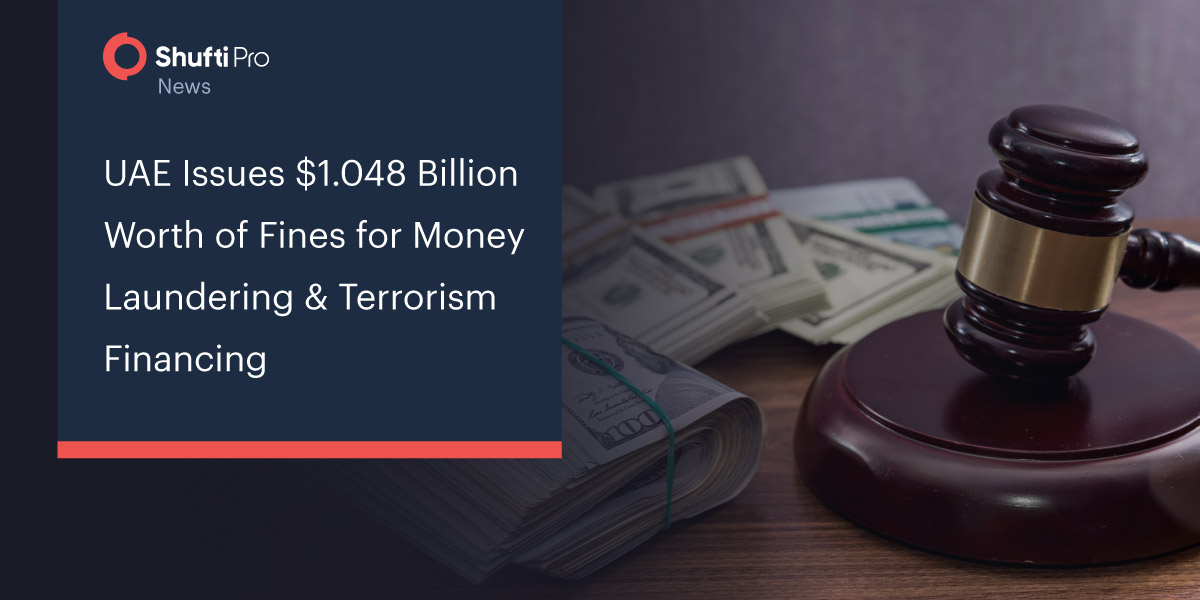 Explore More
Explore More
News
Federal Prosecutors Investigate Trump’s Social Media Company for Money Laundering
Trump’s social media company is reportedly under investigation by federal prosecutors in New York...
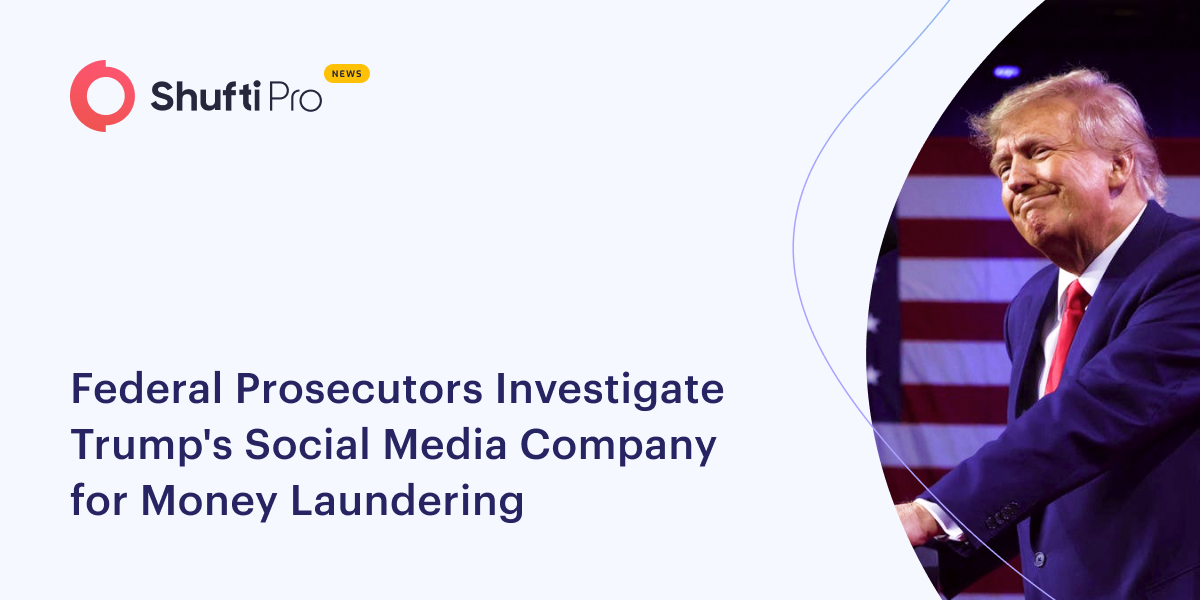 Explore More
Explore More
News
Cambodian Minister of Justice Addresses AML Action Plan to Escape FATF’s Gray List
The Minister of Justice Koeut Rith has advised all financial institutions to continue their coope...
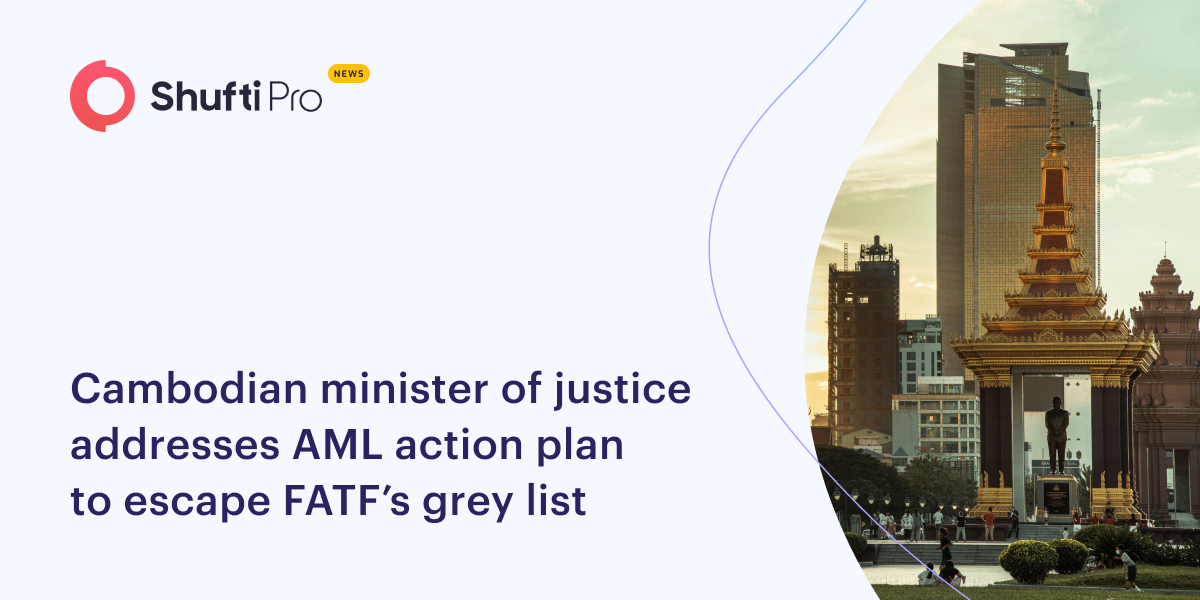 Explore More
Explore More
News
Danske Bank Charged with $413m for Defrauding Investors about AML Shortcomings
The Securities and Exchange Commission has charged Danske Bank $413 million for misleading its cu...
 Explore More
Explore More
